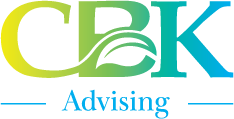Building Stronger Human Resources in 2020

Humans are an interesting species. We think, feel, communicate, and act in ways no other living thing does, and that can make us compatible and very challenging at the same time.
If you look up synonyms for “human”, you get a list including “mortal,” “individual,” “civilized,” “fallible,” “forgivable,” and “vulnerable.” Looking at these characteristics, it’s understandable why interacting with each other can be challenging. For instance, are you feeling mortal or fallible today? Civilized or vulnerable? How a person feels usually determines how he/she will act. But, since no two people express all their feelings and actions exactly alike, understanding and adapting to human emotions and actions, (including our own) can be the difference between success and failure.
HR departments often become the catch-all of an organization, with responsibilities that not only include hiring, firing, and tracking salaries and benefits, but also employee development, training, and coaching/counseling. Having worked with both small and large businesses, I can tell you that one of the biggest challenges of any business is employee management. Managing schedules, paychecks, and benefits is the easy part; handling different personalities, behaviors, motivations, and communication styles is the true challenge.
So, how does a company maximize its human resources to create a solid team? Start by understanding the human factors that make us both unique and similar.
In business, it’s important to recognize how different behavioral styles can be beneficial depending on the job role and responsibilities. That’s where DISC assessments come in. For instance, if you have a job opening in a fast-paced environment and you need someone who will solve problems quickly and assertively, finding or grooming someone who is high in “Dominance” may provide a better fit than someone high in “Steadiness” who likes to think things through and works best in roles that require a calculated, steady progression.
Since communication is a behavior, countless companies and government agencies have benefitted by using DISC assessments. From increasing leadership skills, to reading and responding to buyer’s signals, having insight into behavioral styles and how best to interact with them is a beneficial human skill.
A Florida healthcare organization was having trouble getting their staff to consistently call patients to remind them of their upcoming appointment, and the missed appointments caused a substantial revenue loss each week. To combat the problem, they tried incorporating an “Employee of the Month” plaque for whomever was most consistent in making calls. Then, they offered gift cards to the employees who made the most calls. And, at one point, they created a “Team Call Leader” position that rotated quarterly. But, these attempts only helped for a short period of time, and they could never get the whole team to participate as needed. After reviewing the assessment results of the team, we created a “grab bag” of incentives that employees could choose from. This allowed each person to select a reward that aligned with their personal motivators so everyone on the team was engaged in the process. Within the first few months of the “grab bag”, the organization’s revenues were up substantially, and employee morale was increasing, too!

